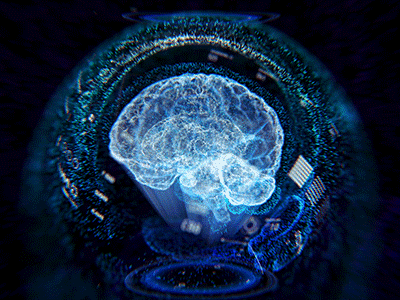
News 📸 Highlights:
Quality Concerns with CBD 🍃 Products: Some CBD products may contain higher levels of THC than legally allowed, which could lead to unintended psychoactive 🍄 effects and potential dependency risks. This highlights the importance of purchasing 💶from reputable sources (Verywell Mind).
CBD’s 🌴 Interaction with the Endocannabinoid System: CBD interacts with the body’s endocannabinoid system in a way that reduces the likelihood of developing an addiction 🍺, unlike THC, which affects dopamine levels and the brain’s reward system (Zebra CBD)(PureKana).
CBD Use for Withdrawal Symptoms: Early studies 📃 show promise in using CBD to manage symptoms of drug withdrawal, such as cravings 🍟 and anxiety 🧟♂️. It is being explored as a therapeutic tool in addiction recovery for substances like opioids and stimulants (Avenues Recovery).

Quick Read:
CBD 🌱 does not create addiction: Unlike THC, CBD does not bind strongly 🏋️♀️ to receptors responsible for addiction and euphoria.
CBD and the brain 💚: CBD interacts with different brain receptors, like serotonin, without hijacking the brain’s reward 🥇system linked to addiction.
🔬 Scientific evidence: A WHO report and various studies confirm that CBD has no potential for abuse or dependency.
CBD may reduce other addictions 💉💊: Research suggests CBD could help reduce dependency on substances like opioids and nicotine.
🛡️ Choose quality CBD products: To avoid contaminants, always opt for third-party tested, trusted CBD 🌲 sources.
CBD is generally well-tolerated, but users should be aware of potential side effects such as fatigue or interactions with other medications. While CBD is not addictive, the purity and dosage of products can vary, making quality control essential”
CBD Addiction Myth 🧞: Can Using CBD Lead to Dependency or Addiction Like Other Cannabinoids?
When people 👨👩 hear about cannabinoids, their first thought often drifts to the well-known effects of THC, the psychoactive component of cannabis 🌿. THC can lead to euphoria but also dependency in frequent users, which begs the question: does CBD, another key compound from the same plant, hold the same risks? 🤔
CBD (cannabidiol) has been marketed as a non-psychoactive 🦄, safe, and therapeutic substance, but with the increasing popularity of CBD products, concerns about its potential for addiction have surfaced 🧪. Let’s explore the science 💻 behind this claim and whether CBD use could lead to the same kind of dependency observed with other cannabinoids 🎋.

The Neurobiology of Addiction 🍷
Addiction is deeply rooted in the brain’s reward system, where neurotransmitters like dopamine play a pivotal role 🧠. Substances like THC and opioids can hijack 👊 this system, leading to reinforced behaviors that make quitting difficult, often resulting in addiction. But CBD operates differently.
Unlike THC, CBD doesn't bind strongly to CB1 receptors, which are responsible for the euphoric "high" 🌀. Instead, CBD interacts more subtly with the endocannabinoid system and other receptors like 5-HT1A, which is tied to serotonin—a neurotransmitter linked to mood regulation 😊. This distinct interaction means that CBD is less likely to trigger the pleasure-reward cycle associated with addiction.
Scientific 💡 Studies: What Does the Research Say?
A 2017 World Health Organization (WHO) report provided clarity on CBD’s safety profile 📑. According to the report, “In humans, CBD exhibits no effects indicative of any abuse or dependence potential.” Other studies support this, showing that even at high doses, CBD doesn’t produce the same psychoactive effects or risk for addiction as THC 🎯.
Furthermore, some research 📙 even suggests CBD could be helpful in reducing addiction to other substances like opioids, nicotine, and even THC itself 📉. This therapeutic angle adds an interesting twist 🔀: not only is CBD non-addictive, but it might also serve as a tool for combating addiction.

Can CBD Create Psychological Dependency?
While CBD doesn’t have the physical addiction profile of substances like nicotine or THC, psychological dependence is always a possibility, even with non-addictive substances 🧠. Some people might feel reliant on the calming effects of CBD to manage stress, anxiety, or sleep issues 😴. But this is more akin to how people might feel dependent on caffeine or sugar rather than a true addiction.
The key difference is that psychological dependency on CBD doesn’t result in withdrawal symptoms or harmful behavior escalation like addiction to harder substances often does 🔄. It's more about habitual use to maintain a certain quality of life rather than a compulsive need driven by chemical changes in the brain.
Are CBD Products Safe?
It’s important to note that the safety of CBD products also depends on where you’re getting them 🛑. The unregulated market is filled with products that may contain contaminants, including THC, synthetic cannabinoids, or harmful chemicals 🚨. To minimize risks, always choose high-quality CBD from trusted sources and ensure products are third-party tested.

Conclusion: CBD, Addiction, and You
So, can CBD lead to addiction? Based on current scientific evidence, the answer is a resounding no 🚫. While it’s essential to continue monitoring emerging research, especially as CBD use grows worldwide, the existing studies suggest that CBD is not addictive like THC or other substances. Its potential benefits, from anxiety relief to aiding in addiction recovery, far outweigh any risks when used responsibly 🌱.
How has CBD impacted your life or wellness routine? Would you say you feel dependent on it, or is it just a helpful tool in your day-to-day life?
⛵ Embrace The Moment 🐳

The information provided in this newsletter is for informational purposes only and does not constitute medical, legal, or professional advice. Always consult with a qualified professional before making any decisions based on the content shared here.

